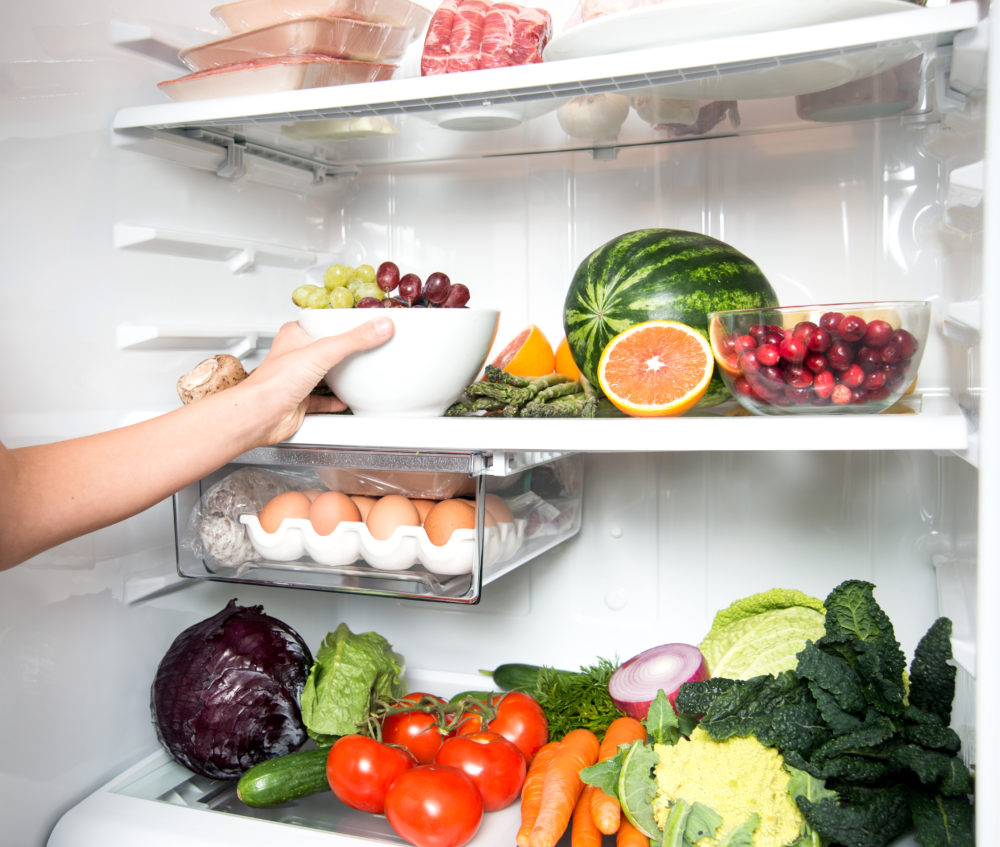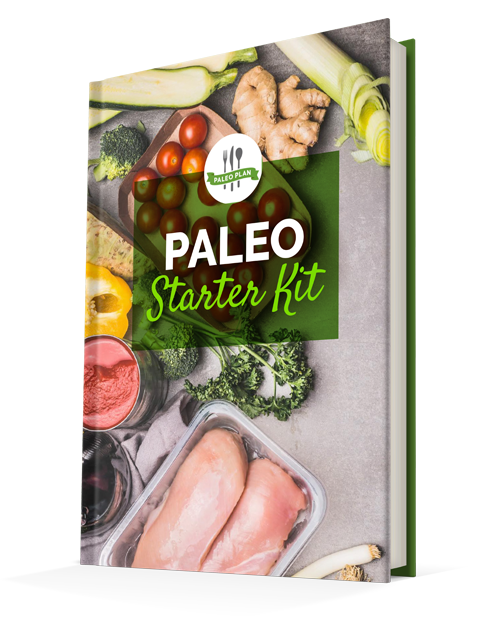
Carrageenan is a common food additive that often pops up in natural foods since it’s derived from seaweed. But that’s where the naturalness ends. In fact, there are concerns about the potential for negative health effects of carrageenan not only from those advocating a Paleo approach to health, but also from the scientific community as well.
What is Carrageenan?
Commonly known as Irish Moss, carrageenan is derived from a species of edible seaweed that grows in the Atlantic along the rocky coasts of Europe and North America. Carrageenan has been harvested by Europeans and used in foods for centuries as a gelling agent and as a home remedy for coughs and colds.
Carrageenan is a soluble dietary fiber that has no calories. In today’s world of modern food processing, carrageenan is used in products to thicken, emulsify, stabilize, and provide uniformity. It is also used in dog food and personal products such as toothpaste.
Problems With Carrageenan
A worldwide trend in the rise of IBD seems to be consistent with the rise in the consumption of processed foods that contain gelling agents, including carrageenan. (2, 3) Carrageenan has been shown to have detrimental effects in both animal experiments and human intestinal cell studies, which brings up the question: why are we still eating it? (4, 5) Even anecdotal evidence has shown that removing carrageenan from the diet can help resolve gastrointestinal issues associated with inflammation.
Although far from definitive, research links dietary carrageenan to symptoms of inflammatory bowel disease (IBD) such as gut inflammation, cell necrosis and ulcers, as well as to possible roles in cancer growth and insulin resistance. (6, 7)
Carrageenan has been controversial for decades. Originally granted GRAS status (Generally Recognized As Safe), the safety of this food additive was reconsidered by the FDA in 1972 and again in 2012. Neither instance resulted in changes to the GRAS status. In 2007, The Joint FAO/WHO Expert Committee on Food Additives recommended that carrageenan be excluded from infant formula. Although it remains in formula in the United States, carrageenan is banned for use in infant formula in Europe. (8)
The National Organic Standards Board (NOSB) voted in 2016 to remove it from the list of approved ingredients in organic products and although the USDA isn’t set to rule on this until the fall of 2018, many organic food producers have reorganized their products to be carrageenan-free.
Clearly, carrageenan is a problematic food additive. If babies shouldn’t consume it, the NOSB doesn’t think it should be used in organic products, and the scientific community is at odds over its safety, should we be consuming it at all?
4 Reasons You Should Avoid Carrageenan
While carrageenan can have an impact on numerous health conditions, there are four ways that it can specifically impact the body in a negative way.
1. Inflammation

It may be hard to believe, but the the intestinal mucosa – the wall separating your gut from the rest of your body – is only one cell thick! It’s not surprising then that a protective layer of mucus covers the cells, and specialized proteins form “tight junctions” between them, serving as barriers for a strong intestinal surface. When the mucosal layer is healthy and the tight junctions are working properly, proper digestion and absorption can occur.
The integrity of the intestinal mucosa is susceptible to lifestyle and dietary factors. (9) When we live and eat in ways that are not favorable to our genetics, as is the norm in our chronically stressed out lifestyles, there is mucosal and tight junction breakdown. As a result, gut contents start leaking into the body, a process that is referred to as leaky gut. (10)
In leaky gut, particles end up in your circulation that shouldn’t be there. These can include partially digested foods, toxins, pathogenic yeasts, fungi, parasites, bacteria, and viruses that put the the immune system into a state of chronic activation, leading to an ongoing cycle of inflammation and tissue damage. The intestinal microbiome is altered in this process, which further contributes to inflammation. (11, 12)
Although human testing isn’t done because it wouldn’t be ethical to make people sick, test tube studies have shown that carrageenan triggers inflammation in human intestinal cells. (13, 14, 15) Even if you have no pre-existing inflammatory issues, eating carrageenan could contribute to the development of leaky gut and similar malabsorption issues.
2. Inflammatory Bowel Disease
Inflammatory bowel disease includes a group of intestinal disorders that involve inflammation anywhere in the digestive tract including the
- Mouth
- Esophagus
- Stomach
- Small intestine
- Large intestine
- Rectum
The two primary types of IBD are ulcerative colitis (inflammation and sores in the large intestine and rectum) and Crohn’s disease (inflammation of the lining of the digestive tract that can result in ulcers, usually at the end of the small intestine).
Symptoms of IBD come and go, or occur with different levels of severity as the disease vacillates between flares and remission. They can include:
- Diarrhea
- Fever and fatigue
- Abdominal pain and cramping
- Blood in the stool
- Reduced appetite
- Unintended weight loss
Severe cases of IBD can lead to life threatening complications. In keeping with the theory of autoimmunity, three factors influence the development of IBD including: (16)
- Genetic predisposition: a family history of IBD.
- Leaky gut: increased intestinal permeability leading to stimulation of the immune system.
- Environmental triggers that cause a leaky gut, such as diet.
It’s theorized that carrageenan may act as the sole environmental trigger, or work in concordance with other triggers, to produce inflammation and IBD in those who are genetically susceptible. Carrageenan may be a “conditional inflammatory agent” that provokes a worsening of existing inflammation from leaky gut. (17)
Animal testing shows mixed results for carrageenan and the formation of intestinal ulcers. In one study, guinea pigs developed colonic ulcers after eating a diet relatively high in carrageenan compared to the typical Western diet. (18) In other studies, carrageenan did not cause ulcers in animals. (19)
In a test tube analysis using human epithelial cells, relatively low doses of carrageenan increased colonic cell death due to pathology. From these results, the authors concluded that the possibility exists for intestinal ulcers characteristic of IBD to form in humans in response to carrageenan exposure. (20)
While it’s far from definitive that carrageenan exposure causes intestinal ulcers, there’s a catch: although the amounts are reported to be low, poligeenan does show up in the food supply. (21) Poligeenan is a type of carrageenan that is not permitted for use in food, but that has been extensively studied.
Poligeenan is lower in molecular weight than carrageenan and is extremely toxic to gut mucosa, causing inflammation and intestinal damage resembling inflammatory bowel disease (IBD), as well as cancerous lesions in animals. Poligeenan is used in animal studies to induce intestinal inflammation for the testing of anti-inflammatory drugs. (1)
There are three ways that poligeenan, and not just carrageenan, can show up in foods.
- Poligeenan can be formed from carrageenan during digestion via acid hydrolysis. (22, 23)
- Intestinal bacteria may degrade carrageenan into poligeenan. (24)
- Foods may be contaminated with poligeenan. (25)
So while the jury may be out on a final verdict for carrageenan, the potential association with poligeenan alone should give much greater caution with this unnecessary food additive.
3. Cancer
While poligeenan has group 2B cancer classification – meaning that it is considered possibly carcinogenic to humans – carrageenan has GRAS status and is generally recognized as safe.
Although it is true that carrageenan has not been shown to cause cancer in animals, two studies have shown that it accelerates tumor growth in rats when applied with a carcinogen. (26, 27)
Another study showed that when rats were fed diets that contained either wheat bran, guar gum, or carrageenan to test the effect of various fibers on an enzymatic marker for colon cancer, only carrageenan raised the activity of this enzyme compared to the control group. (28)
4. Glucose Intolerance

Glucose intolerance refers to higher than normal levels of blood glucose due to metabolic conditions such as insulin resistance. Carrageenan has been shown to cause glucose intolerance both in mice, and in a test tube study of human liver cells. (29, 30)
Currently, there is a study being conducted at the University of Illinois at Chicago on the impact of a no-carrageenan diet on glucose tolerance in subjects with prediabetes. The study is active until the end of 2018. (31)
31 Common Foods That Contain Carrageenan
Carrageenan has strong capacity to bind with meat and milk proteins and it is often found in these types of processed foods, including those that are organic.
Many organic food producers have reformulated their products to be carrageenan-free, but you have to read labels to know for sure. Unfortunately, when carrageenan is used as a “processing aid,” as is often the case with cream, it will not be listed on the label. If you are really trying to avoid all traces of carrageenan, and you’re not sure if it has been used in the processing of a food you like, you’ll have to contact the company to find out.
The following are foods that may contain carrageenan:
- Almond milk and other nut milks
- Rice milk
- Coconut milk
- Soy milk
- Chocolate and other flavored milks
- Buttermilk
- Eggnog
- Coconut water
- Ice cream
- Cottage cheese
- Yogurt including “squeezable yogurt”
- Nondairy yogurt
- Kefir
- Sour cream
- Cheese alternatives (vegan cheese)
- Pudding
- Tofutti
- Heavy whipping cream
- Coffee creamers
- Dips
- Juice
- Desserts
- Deli meats
- Processed chicken
- Canned soup
- Candy bars
- Processed meals
- Nutrition bars
- Nutritional drinks
- Non-organic infant formulas
- Nutritional supplement beverages
Bottom line: The potential for carrageenan to spark inflammatory and disease-causing problems within the body is there, and at the least, this ingredient should warrant caution. Considering the volume of foods and products that it can appear in, a person might ingest a significant amount of carrageenan each day without even realizing it. Reading labels is an essential place to start.
How To Avoid Carrageenan

Ultimately, you will have to discover if carrageenan is causing problems for you. Choosing to eat within a Paleo framework naturally lowers your intake of this additive because processed foods are avoided.
However, you’ll still come across Paleo-friendly foods that contain carrageenan, even some that are organic. This shopping guide can be helpful for finding carrageenan-free organic foods.
If you suffer from unexplained symptoms of of gastric distress, even if it’s minor, you might try going the extra mile to be carrageenan-free for awhile and see how you feel.
